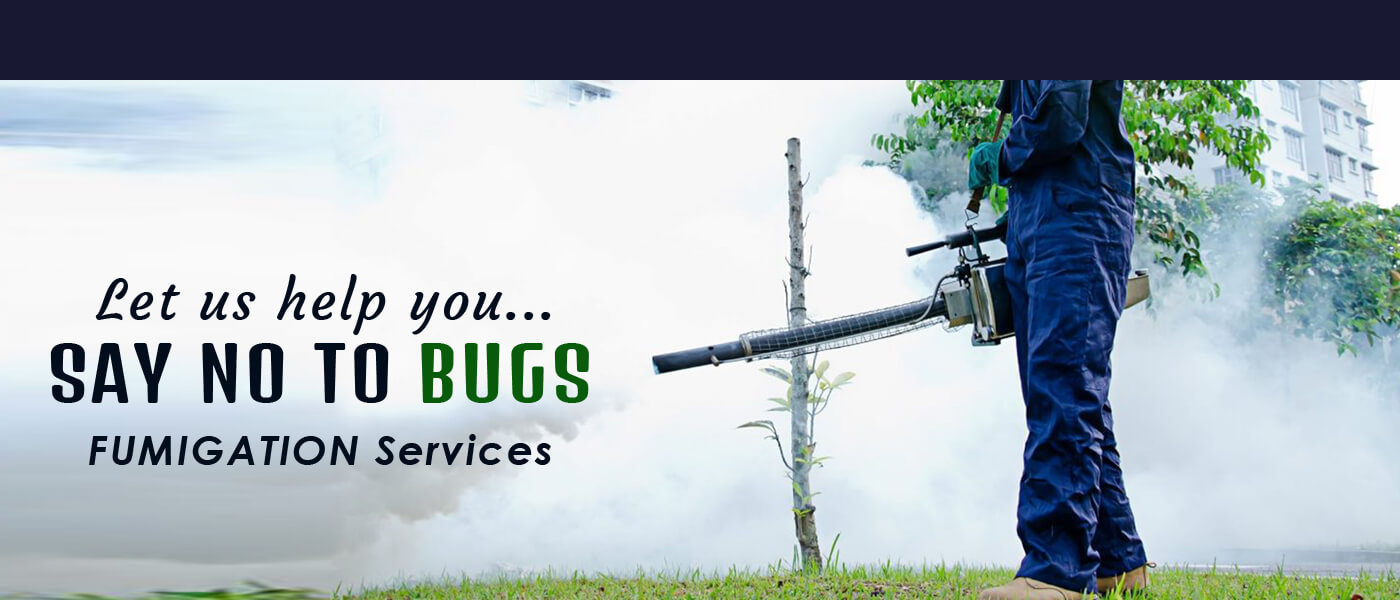Is Secure Fumigation necessary for pest control in the winter?
Yes, pest control services in Karachi is crucial in the winter, Believe it or not, winter pests are surprisingly worse than summer pests. Though mosquitoes, wasps and bees, and other annoying flying insects are gone, this doesn’t mean that the threat of all pests is gone as well. The warmth of your home is particularly inviting to rodents and insects during the harsh temperatures of winter, meaning they do whatever it takes to get inside. That is why it is crucial to take proactive measures to keep pests out. Not only can they be annoying, but also harmful to your health. Rodents can carry diseases, such as Salmonella and Hantavirus, spider bites can result in dangerous side effects, and cockroaches can prompt asthma and other allergies.
While there are ways to prevent winter pests from invading your home, individuals are usually unable to secure the entirety of their home. Winter pests will always find a point of entry, which is why professional pest control services are ideal to ensure that all necessary prevention techniques are thoroughly and properly completed. However, some steps you can take on your own include:
- Seal all cracks and holes on the outside of your home. Mice can squeeze through a dime-size hole, so make sure they are thoroughly sealed
- Keep firewood at least 20 feet from your home, as rodents and ants love to hide in these piles
- Secure the mortar and weather stripping around your windows and foundation
- Install screen vents to your chimney
- Eliminate moisture from all attics, basements, and crawl spaces
- Dry out all moisture sites, especially in your bathroom. Ensure the absence of leaking pipes and clogged drains, or any other potentially wet area. Such conditions are attractive to cockroaches
- Keep your home clean and ensure its doors and windows are kept proper working condition! Rodents and other pest love to hide in clutter and have been known to intrude through damaged doors and window seals, as indicated on this page
What are the most common Termite and pests?
Although the possibilities of winter pests are endless, the most common are:
- House Mice: House mice aren’t simply common winter pests, but the most common pests throughout the United States, especially North Carolina. They prefer dark, secluded areas and can significantly damage your home, as they have a reputation of chewing through drywall, wires, and more. These rodents can also spread diseases and bacteria, such as salmonella and tapeworms, and contaminate food. Similar to house mice, other types of rodents prefer dark, secluded spots in your home, like basements. They too can chew through items in your home, so it’s best to keep them out.
- Cockroaches:Cockroaches are another common winter pest that likes to hide in small areas containing moisture. They also prefer to be close to food, which is why they are a big threat to your home. Normally, they are found in kitchens or bathrooms, and cockroaches in kitchens make for contaminated food and the spread of bacteria and pathogens.
- Brown Recluse Spiders. Spiders too, like secluded places, such as basements, crawl spaces, attics, and closets. Typically, they are found near window moldings, ceiling corners, in boxes, or in shoes or clothes that haven’t been disturbed in a while.
Which Food Pest and Termite eat in winter?
Overall, insects follow the exact same diet that they do during the other, warmer seasons. Most insects simply carry on, as usual, crawling within warmer pockets of grass and leaves, or even on the surface of snow, to find their food. Others undergo diapauses, which is where insects enter a semi-frozen state throughout the winter and thaw in the spring. So, aside from the ones that are semi-frozen, insects simply carry on, as usual, eating a range of different foods, from plants and seeds to wood or the flesh of small animals.
What happens to spiders in the winter?
What happens to spiders in the winter vary depending on the type of spider. Some spiders undergo a process known as cold hardening, where they produce antifreeze compounds to help them survive, before finding shelter within homes, leaves, or bark. If these antifreeze compounds are not produced by the time the temperature reaches harsh temperatures, they will die. Other spiders seek shelter between the ground and the snow, where the air temperature is warmer and do not make any webs.
Can spider eggs survive the winter?
No, spider eggs cannot survive the winter. That is why most spiders produce eggs during the fall or once winter ends. During the fall, it is important to vacuum your entire home before winter to ensure no spider eggs are within your home.
Does cold weather kill insects?
While all insects have the ability to survive winter through the use of various tactics, such as burying themselves, burrowing themselves, and hibernating, if the temperature drops below a certain point, that is when they do not survive. Generally, the colder the temperature, the less of a chance the insects have of surviving.
Contact Your Secure Pest Extermination Experts Today
Winter pests are never fun to deal with, and an infestation can cause a costly situation. However, these creatures are crafty, and they can easily discover ways into a home that is not properly prepared. That is why it is best to ensure that winter pests never gain access to your home with professional services. At Secure Fumigation Services, one of our major goals is to perform a thorough and consistent service that our customers can count on.
Whether your home is in DHA, Clifton, Gulistan-e-Jauhar, Gulshan-e-iqbal, Shahra-e-Faisal, PECHS, Nazimabad and North Nazimabad etc you can count on Secure Fumigation Services to rid your home of pesky rodents, cockroaches, spiders, and other nuances. Be sure to fill out our contact form below or give us a call today at 0317-0127389 0321-8950252 to learn more about us at http://securefumigation.com!

